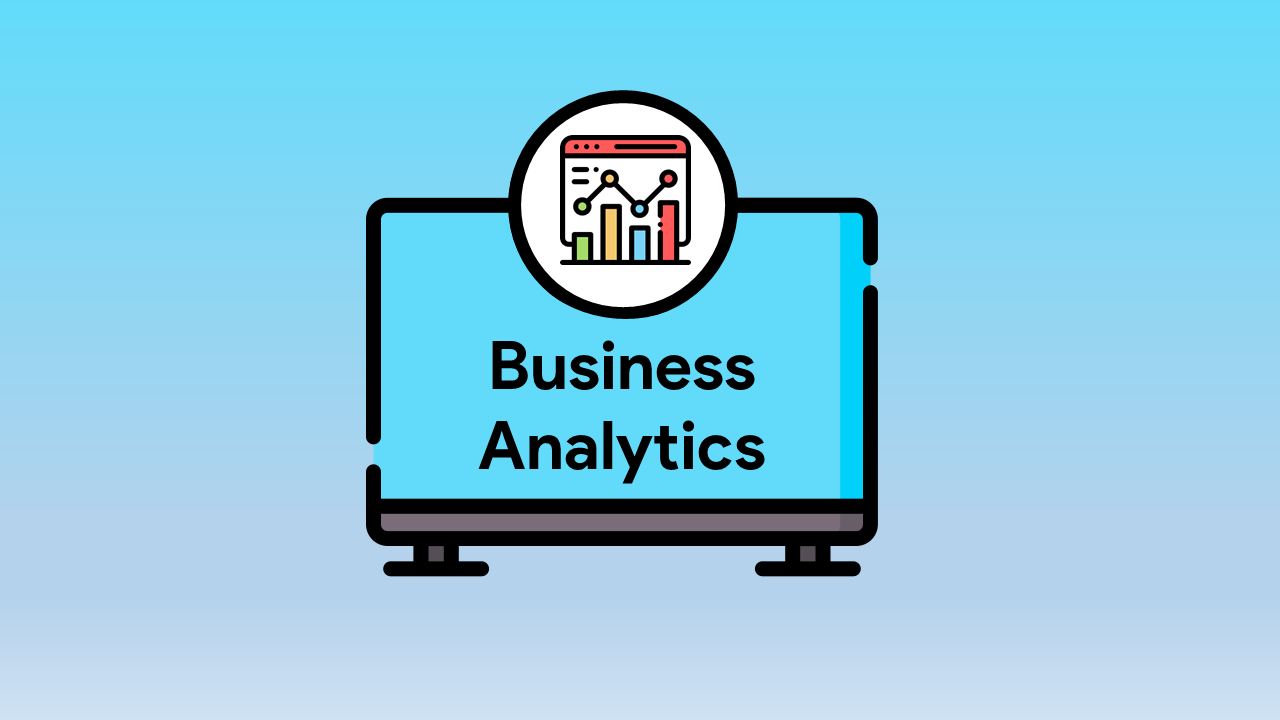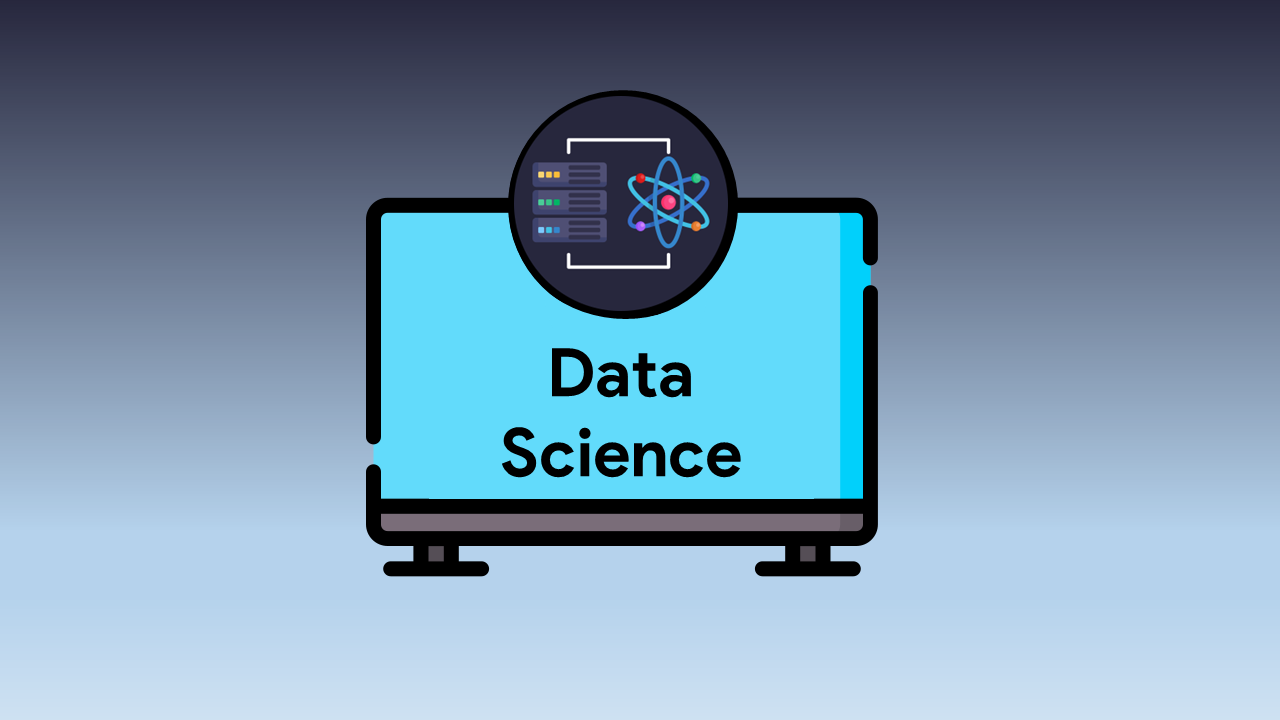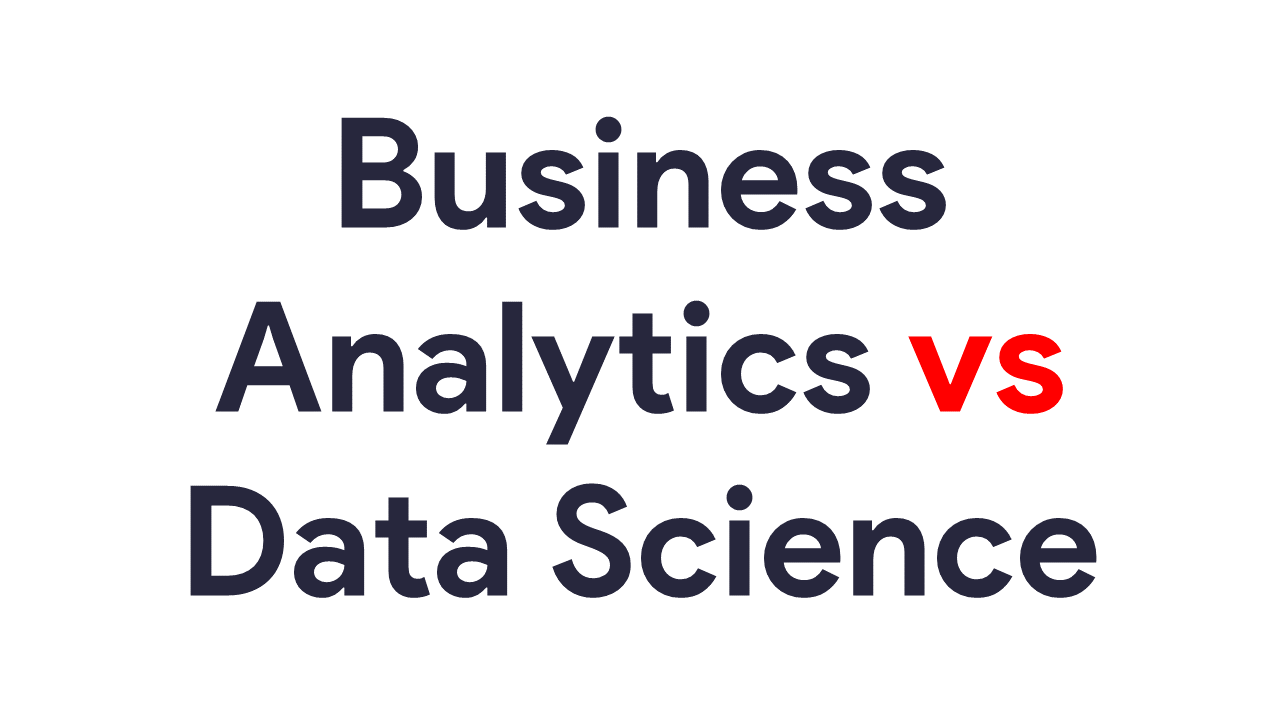Table Of Contents 👉
- Introduction
- What is Business Analytics?
- What is Data Science?
- Business Analytics vs. Data Science: A Comparative Overview
- Key Similarities and Differences in Business Analytics And Data Science
- Tools and Technologies in Business Analytics
- Tools and Technologies in Data Science
- Career Paths and Opportunities in Business Analytics And Data Science
- Choosing the Right Path
- Conclusion
Introduction
Analytics forms a key component for any business that relies on data in this digital age. Prominent branches of this include Business Analytics and Data Science. They have some similarities, but they are different in certain ways.
This article will thus be helpful if you are considering pursuing one or both of them as a job or would like to know which is best for your interests and goals.
We’ll talk about technologies, professions, and possibilities in data science and business analytics in this article.
What is Business Analytics?

Business analytics refers to the process of evaluating existing data in order to enable making logical decisions based on factual data. It is basically transforming non-actionable raw data into decision-making information.
This involves using these insights to address particular business issues, increase performance as well and make decisions in the business arena.
A number of tools are used in Business Analytics, from descriptive statistics and data visualization to predictive and prescriptive analytics.
What is Data Science?

On the other side, Data Science is a much greater and more wide-ranging subject area that incorporates components of statistics, machine learning, computer science, and professional knowledge.
The job of a Data Scientist is to collect, clean, and analyze data in order to identify unknown trends, make forecasts, and derive any information that could be used in solving difficult tasks.
Business Analytics vs. Data Science: A Comparative Overview

To provide a comprehensive understanding of the differences and similarities between Business Analytics and Data Science, let’s break down the key aspects in a comparative table:
| Aspect | Business Analytics | Data Science |
| Focus | Operational and historical data analysis | Predictive modeling, machine learning, and deep data exploration |
| Purpose | Improve business operations and decision-making | Solve complex problems, generate insights, and innovate |
| Data Sources | Structured data from business transactions and operations | Diverse data sources, including structured and unstructured data |
| Methods | Descriptive and diagnostic analytics, reporting, data visualization | Predictive, prescriptive, and advanced machine-learning techniques |
| Tools and Technologies | Excel, BI tools, data warehouses, and reporting software | Python, R, Hadoop, Spark, TensorFlow, and a wide range of data science libraries |
| Business Focus | Optimization of existing processes and strategies | Innovation, creating new products, and identifying new opportunities |
| Decision-Making Impact | Incremental improvements in efficiency and effectiveness | Transformational, game-changing insights, and disruptive innovation |
| Skill Set | Statistical analysis, data visualization, business domain knowledge | Programming, machine learning, deep learning, big data, and domain expertise |
| Job Roles | Business Analyst, Data Analyst, Business Intelligence Analyst | Data Scientist, Machine Learning Engineer, Data Engineer |
| Data Cleaning and Prep | Limited data cleaning and transformation | Extensive data cleaning, feature engineering, and data wrangling |
Key Similarities and Differences in Business Analytics And Data Science
Now that we’ve broken down the aspects in the table, let’s delve deeper into the key similarities and differences between Business Analytics and Data Science.
Similarities:
- Data Utilization: Both fields heavily rely on data to draw insights and make informed decisions.
- Data Analysis: Both involve data analysis, but the depth and complexity of the analysis differ.
- Data Visualization: Data visualization is critical in both fields to communicate findings effectively.
- Business Impact: Both fields aim to positively impact businesses, although the scale and scope of the impact vary.
Differences:
- Focus: Business Analytics primarily focuses on optimizing existing processes and improving efficiency, while Data Science focuses on solving complex problems and driving innovation.
- Methods: Business Analytics leans towards descriptive and diagnostic analytics, while Data Science embraces predictive and prescriptive analytics, often involving advanced machine learning.
- Tools and Technologies: Business Analytics primarily uses BI tools and reporting software, while Data Science relies on a broader array of technologies and programming languages.
- Business Role: Business Analytics is more aligned with improving current business operations, while Data Science is instrumental in driving innovation and identifying new opportunities.
- Decision-Making Impact: Business Analytics often leads to incremental improvements, whereas Data Science can have transformational, game-changing effects.
- Skill Set: Data Scientists need a more extensive skill set, including programming, machine learning, and big data expertise, compared to Business Analysts.
- Data Cleaning and Prep: Data Science often involves extensive data cleaning, feature engineering, and data wrangling due to the variety of data sources.
Tools and Technologies in Business Analytics
Business analytics tools and technologies are intended to assist organizations in understanding what they have done in the past. Here are some of the key tools commonly used in the field:
- Microsoft Excel: Excel provides functionality for data modification, visualization, and reporting.
- Business Intelligence (BI) Tools: Interactive dashboards and reports can be created using BI tools like Tableau, Power BI, and QlikView.
- SQL (Structured Query Language): Without SQL, it would be impossible to query or retrieve data from a relational database.
- Data Warehouses: Tools like Amazon Redshift and Google BigQuery are used for storing and managing large datasets.
Tools and Technologies in Data Science
Due to its broader scope and more advanced data analysis techniques, Data Science uses a varied set of tools and technologies:
- Programming Languages: The main programming languages used for data manipulation, modeling, and analysis are Python and R.
- Machine Learning Frameworks: Building and implementing machine learning models makes use of libraries such as Scikit-Learn, TensorFlow, and PyTorch.
- Big Data Technologies: Hadoop and Spark are used to process and analyze large-scale, distributed datasets.
- Data Visualization Tools: Scientists often use Matplotlib, Seaborn, and Plotly for data visualization.
- Data Wrangling Tools: Pandas and Dplyr are used for data cleaning, transformation, and manipulation.
- Cloud Computing Platforms: Services like AWS, Azure, and Google Cloud provide scalable infrastructure for data science projects.
Career Paths and Opportunities in Business Analytics And Data Science
Business Analytics:
- Business Analyst: Business Analysts are responsible for examining business processes and suggesting improvements based on data analysis. They often work with operational data and contribute to ongoing process optimization.
- Data Analyst: To give insights that can aid in corporate decision-making, data analysts concentrate on gathering, processing, and analyzing data. They are essential to the creation of dashboards and reports.
- Business Intelligence Analyst: BI Analysts are experts in using BI tools to create interactive reports and dashboards. They work closely with business users to provide insights and data visualizations.
- Data Scientist (in a Business Setting): Some Data Scientists work in business environments but tend to focus more on predictive analytics and machine learning. They bridge the gap between Business Analytics and Data Science.
Data Science:
- Data Scientist: To extract useful insights, data scientists are in charge of gathering, cleaning, and analyzing data. They employ various statistical and machine-learning methods to provide forecasts and spur innovation.
- Machine Learning Engineer: The development, implementation, and upkeep of machine learning models and systems are the areas of expertise for machine learning engineers. They focus on designing algorithms and making them production-ready.
- Data Engineer: Data Engineers are responsible for managing and preparing data for analysis. They construct and manage warehouses and data pipelines to ensure data availability and quality.
- AI Research Scientist: Deep learning and natural language processing are two areas of cutting-edge artificial intelligence research that AI Research Scientists focus on. They often work in research institutions or tech companies.
- Data Science Consultant: Data Science Consultants provide a range of enterprises and sectors with data-driven solutions. They might be employed by consulting firms or independently.
Choosing the Right Path
It is up to each individual to decide if a career in business analytics or data science is more suited to their interests, abilities, and goals. When selecting the appropriate course, keep the following things in mind:
1. Interest and Passion: This can include a love for data, analysis, and machine learning. On the other hand, if your area of interest lies in the optimization of business operations utilizing archived data, then Business Analytics is ideal.
2. Educational Background: Before pursuing a job in data science, which requires greater mathematics and programming knowledge from an educational background, be sure you meet these prerequisites.
3. Career Objectives: Specify your objectives for your career and where you wish to see yourself in the future with respect to your profession.
Data Science offers more opportunities for innovation and research, while Business Analytics is focused on business optimization.
4. Industry Preferences: Research the industries and types of organizations that align with your career aspirations. Data Science has a broader application, while Business Analytics is prominent in various sectors.
5. Market Demand: Investigate the job market in your region or the region where you plan to work. Some areas may have a higher demand for one field over the other.
6. Education and Training: Look into available courses and programs, such as data science courses in India, to gain the necessary skills and knowledge.
Conclusion
In the data-driven world, Business Analytics optimizes existing processes, while Data Science fuels innovation and complex problem-solving. Choose your path based on passion and career goals.
You can either choose to learn data science or from the business analytics course. Both fields offer rewarding opportunities, and with the right skills, you can make a significant impact.
Which pays more data science or business analytics?
The salary in both Data Science and Business Analytics can be lucrative, but Data Science roles tend to offer higher salaries due to the specialized skills and expertise required in the field.
Is business analytics in high demand?
Yes, Business Analytics is in high demand as organizations seek to improve their decision-making processes and efficiency through data analysis.
Which has more scope: Data Analytics or Business Analytics?
Data Analytics generally has a broader scope, encompassing a wider range of data analysis tasks, while Business Analytics focuses on specific business operations and decision-making.
Related Stories:
